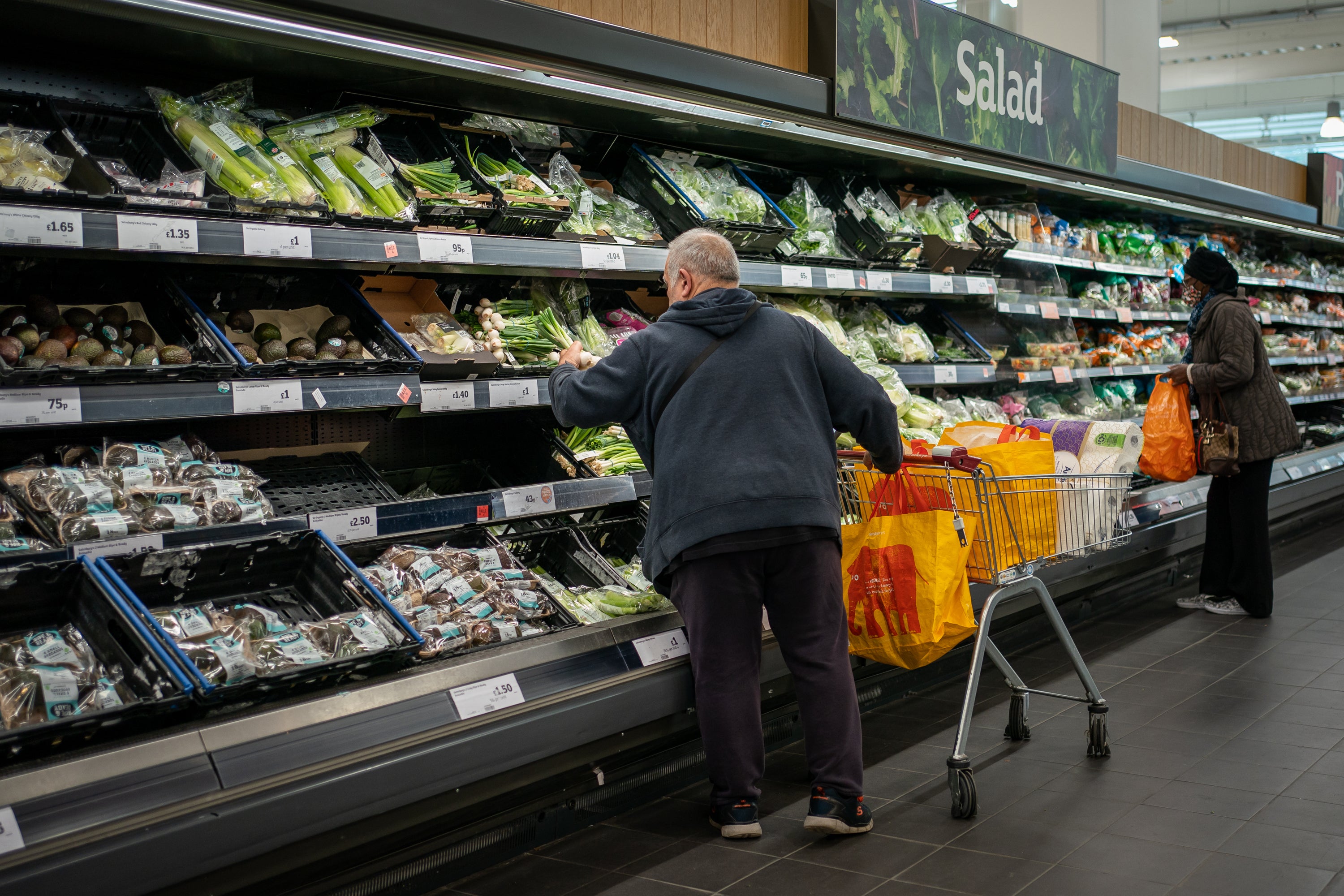Demand at UK’s largest pawnbroker at record levels as cost of living crisis bites
Exclusive: Cash-strapped customers tell of selling sentimental jewellery on a regular basis ‘just to get by’

Demand at the UK’s largest pawnbroker has hit a record high, with the amount of money lent to people in return for pawning goods having surged as the cost of living crisis deepens.
Ministers have been accused of failing to take adequate action to protect people from the impact of rising bills as it emerged that growing numbers of people are trading their belongings for cash to pay for essentials such as food and heating.
Figures shared with The Independent by H&T Group, Britain’s leading pawnbroker, reveal that its pledge book – the amount borrowed by customers in exchange for their own possessions – increased by 17 per cent in just four months this year, from £66.9m to £78.3m.
Pawnbrokers lend money to individuals in return for personal property that can be sold if the loan is not repaid by a certain date.
Shadow work and pensions secretary Jonathan Ashworth said the figures were a “damning indictment of the lack of action” from chancellor Rishi Sunak in the face of the hike in living costs.
“More struggling families and pensioners are now so desperate to scrape together some cash they are forced to part with wedding rings, jewellery, watches and power tools at pawnbrokers with the big risk they will never get these precious items back,” he added.
“This is yet another reason why we need an emergency budget to offer real help now.”
Simone, 45, who didn’t want to use her full name, told The Independent that while she previously used the pawnbrokers very rarely and only in emergency situations, since the start of this year she had been pawning her jewellery on a regular basis “just to get by”.
The London resident, who works as a full-time support worker with vulnerable women, said a bracelet her grandmother gave her and two rings were sold by the pawnbrokers because she was unable to repay the loan, and that she recently had to pawn five other items of jewellery.
“It’s quite upsetting. I’m not winning anything from doing it because I’m having to pay interest. They’re all sentimental items,” she said.
Despite having a full-time job, Simone, who lives in a one-bedroom flat, said the rise in energy bills and groceries had meant she was also cutting back on other things.
“I’ve stopped having little luxuries. I used to be able to go on holiday but I don’t anymore. I’ve cut washing down to once a week,” she said.
“I’ve gone down to eating twice a day instead of three times. I don’t have coffee anymore and I tend to walk instead of getting the bus or the underground. It’s all just too expensive.”
Cheryl McClancy, manager at a pawn shop in London, said there had been an upturn in people using the service since the start of 2022, and a notable rise in customers pawning belongings to pay for the basics.

“Before it was if people needed a bit of money – an unexpected bill or something – but now it’s more to do with basic living costs. Customers who were using assets for holidays are now slipping into the bracket of using it for basic food and heating,” she said.
“Only this morning an elderly lady brought in a gift from her late husband because she wasn’t going to make it until the next pension payment. It does make you think – what happens to people who don’t have an asset? There are probably a large number of people who are just going without.”
Ms McClancy said many of the new customers were pensioners, particularly women, who are struggling to afford to keep their electricity going or to “keep food in the fridge” – which she said was “heart-breaking”.
“It seems incredibly unfair. These people have worked all their lives. We’re a developed country. People shouldn’t be struggling like this,” she added.
It comes after research by the Social Market Foundation (SMF) earlier this month found that people on low incomes were pawning household goods to pay for food and rent.
The report found that a common reason given by users was that they were running out of money before payday, and that loans secured by pawning possessions were typically less than £100.
Jake Shepherd, report author and SMF researcher, said: “As inflation bites deeper into household budgets, it’s no surprise that more and more people are having to take action like this just to get by.”
He added that those using pawnbrokers are not ”stupid” or being “misled”, but rather they “need cash to survive. They’ve made the decision that pawnbroking is the least bad choice among the options available to them.
“This underlines the need for politicians and regulators to pay more attention to how the market for credit is working for people on low incomes."
Chris Gillespie, chief executive of H&T Group, said the figures reflected a “growing need by customers to borrow a small sum for a short term at a time of reduced supply of such credit in the economy”.
“The impact of inflationary pressures is being felt across the economy, by individuals and businesses alike. We are mindful of the challenges this presents for our customers and employees,” he said.
A government spokesperson said: “We understand that people are struggling with rising prices, and while we can’t shield everyone from the global challenges we face, we’re supporting British families to navigate the months ahead with a £22bn package of support.
“That includes saving the typical employee over £330 a year through a tax cut in July, allowing people on the universal credit taper rate to keep more of the money they earn – benefiting over a million families by around £1,000 a year, and providing millions of households with up to £350 each to help with rising energy bills.”
Join our commenting forum
Join thought-provoking conversations, follow other Independent readers and see their replies
Comments



Bookmark popover
Removed from bookmarks